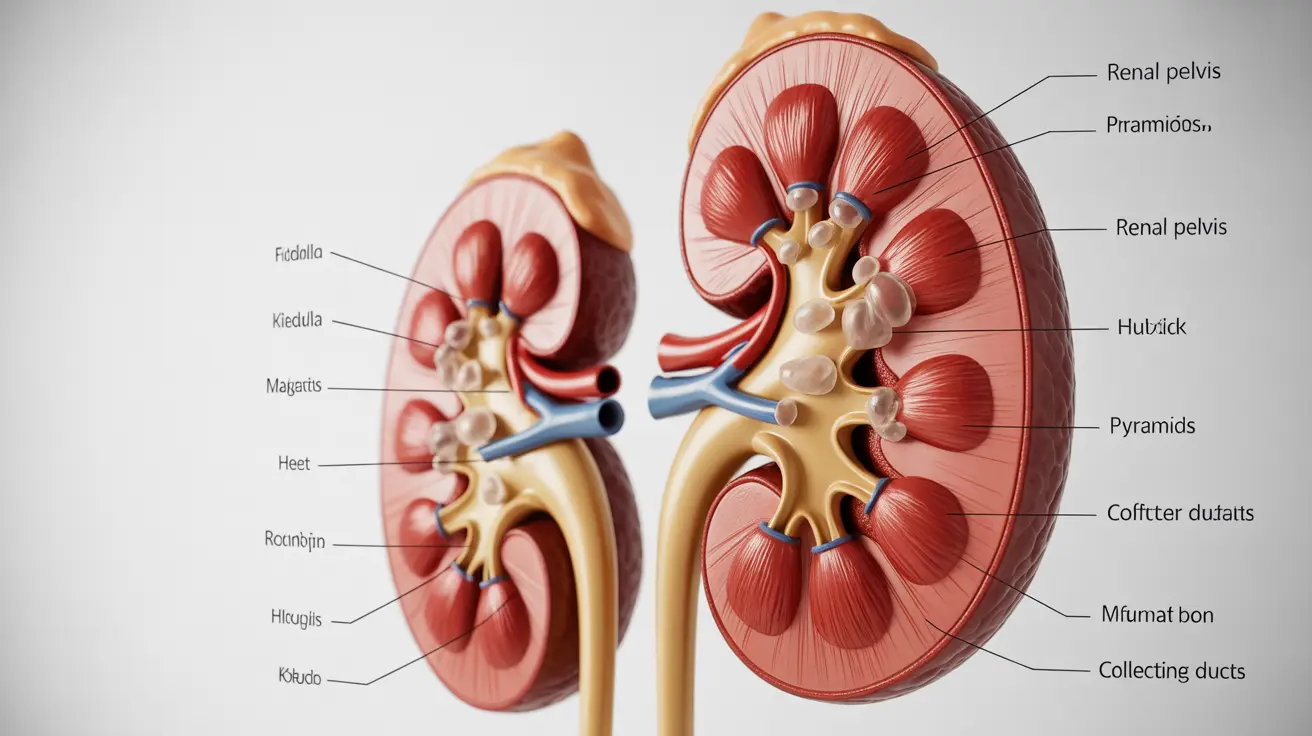Medullary cystic kidney disease (MCKD) is a rare genetic condition that affects the kidneys' structure and function. This progressive disorder causes small cysts to develop in the medulla, the inner part of the kidneys, leading to gradual kidney function decline. Understanding this condition is crucial for early detection and proper management.
While MCKD can be challenging to diagnose in its early stages, recognizing its signs and implementing appropriate treatment strategies can help manage symptoms and slow disease progression. This comprehensive guide will explore the key aspects of medullary cystic kidney disease, from initial symptoms to long-term management options.
Early Signs and Disease Progression
The symptoms of medullary cystic kidney disease typically begin subtly and worsen over time. Early warning signs may include:
- Frequent urination, especially at night
- Increased thirst
- Fatigue and weakness
- Mild to moderate high blood pressure
- Salt craving
As the disease progresses, individuals may experience more severe symptoms:
- Decreased urine output
- Swelling in feet and ankles
- Persistent nausea
- Unexplained weight loss
- Anemia
- Bone pain
Diagnostic Process and Testing
Diagnosing medullary cystic kidney disease requires a comprehensive evaluation that typically includes:
Medical History Assessment
Doctors will carefully review family history and symptoms, as the genetic nature of MCKD makes family history particularly relevant.
Imaging Studies
Several imaging techniques may be used to identify kidney cysts and assess kidney structure:
- Ultrasound examination
- CT scans
- MRI imaging
Genetic Testing
Specific genetic tests can identify mutations associated with MCKD, particularly in the UMOD or MUC1 genes.
Treatment Approaches and Management
While there is no cure for medullary cystic kidney disease, several treatment strategies can help manage symptoms and slow progression:
Medications
Various medications may be prescribed to:
- Control blood pressure
- Manage pain
- Treat anemia
- Address mineral imbalances
Dietary Modifications
A specialized diet plan typically includes:
- Reduced salt intake
- Controlled protein consumption
- Appropriate fluid management
- Monitoring potassium and phosphorus intake
Regular Monitoring
Frequent check-ups and testing help track disease progression and adjust treatment plans accordingly.
Genetic Considerations and Family Planning
Understanding the genetic aspects of MCKD is crucial for family planning. The condition follows an autosomal dominant inheritance pattern, meaning each child of an affected parent has a 50% chance of inheriting the condition.
Lifestyle Modifications for Disease Management
Several lifestyle changes can help manage MCKD effectively:
- Maintaining regular physical activity within prescribed limits
- Getting adequate rest and sleep
- Avoiding smoking and limiting alcohol consumption
- Managing stress through appropriate techniques
- Staying well-hydrated while following medical guidance
Frequently Asked Questions
What are the early signs and symptoms of medullary cystic kidney disease, and how do they progress over time?
Early signs include increased urination, particularly at night, heightened thirst, and fatigue. As the disease progresses, symptoms become more severe, including decreased urine output, swelling in extremities, and complications like anemia and bone problems.
How is medullary cystic kidney disease diagnosed, and what tests do doctors use to confirm it?
Diagnosis involves multiple approaches, including imaging studies (ultrasound, CT, or MRI), genetic testing for specific mutations, and comprehensive blood and urine tests. Family history evaluation is also crucial in the diagnostic process.
What treatments and management strategies are available for someone with medullary cystic kidney disease?
Treatment focuses on symptom management through medications, dietary modifications, and regular monitoring. While there's no cure, these approaches can help slow disease progression and maintain quality of life.
What are the chances of passing medullary cystic kidney disease to my children, and is genetic testing recommended?
As an autosomal dominant condition, there is a 50% chance of passing MCKD to each child. Genetic testing is recommended for both diagnostic purposes and family planning decisions.
What lifestyle changes or dietary adjustments can help slow the progression of medullary cystic kidney disease?
Key lifestyle modifications include following a low-salt diet, maintaining appropriate fluid intake, regular exercise within prescribed limits, and avoiding smoking. Working with a renal dietitian can help develop an individualized dietary plan.




